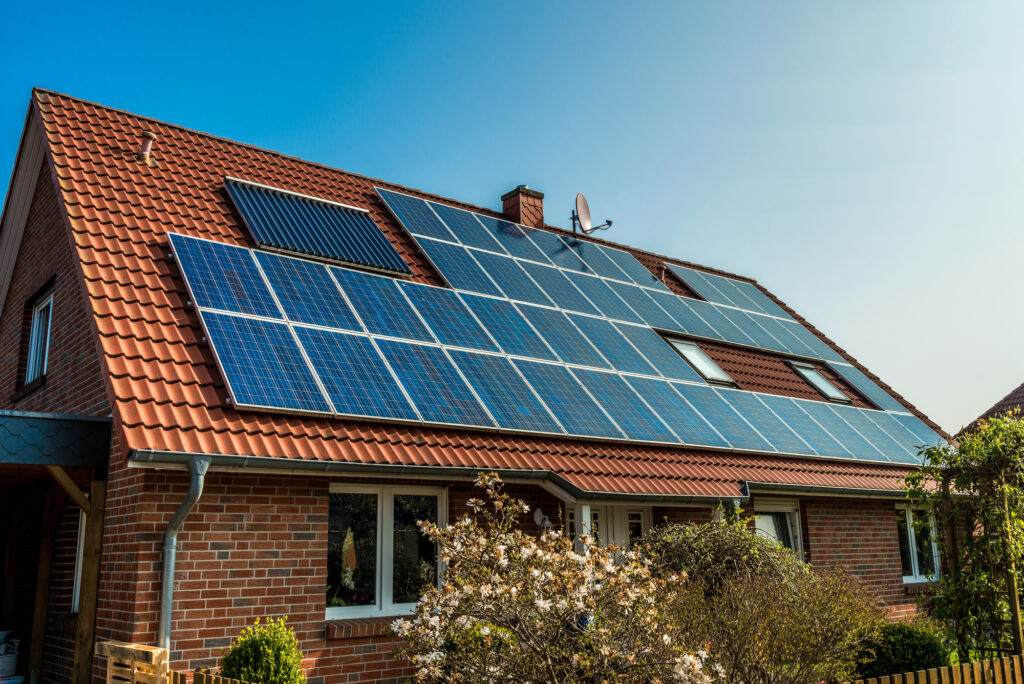With long-term fixed utility contracts making a comeback and new energy laws in tow this year, there are a couple of things you should know before swapping to a different provider or changing your contract.
Picking and arranging your utilities in the Netherlands comes with its own quirks and oddities — here are some important things to keep in mind when getting a new energy contract in 2023.
1. Energy prices are the cheapest they’ve been since 2021
One word: hoera! Energy prices have been on the decline between March and June 2023, much to everyone’s relief.
What does that mean for energy contracts? Well, if you’re locked down to one contract, you won’t benefit from the cheaper energy prices.
On the other hand, now is a great time to ditch your current contract and switch to something more favourable.
Here are the upcoming prices for one-year contracts at a few of the top energy providers in the Netherlands as of June 1, 2023.
| Provider | Gas price (m3) | Electricity price (€/kWh) |
| Eneco | €1.23 | €0.36 |
| Vattenfall | €1.27 | €0.35 |
| Coolblue | €1.28 | €0.37 |
| Engie | €1.38 | €0.41 |
You can compare energy contracts and prices based on your home address and any other preferences and setting you may have in your house.
2. Long-term energy contracts are back and better than ever
Plenty of energy providers, such as Vattenfall and Eneco, are re-introducing long-term energy contracts up to three years — and here’s why they might be more beneficial.
You’re probably familiar with short-term energy contracts, usually averaging about six months. While you aren’t bound to the contract for very long, the rates tend to be slightly higher than the rates in a one-year contract.

The same goes for a three-year contract — you generally pay lower rates with an energy provider if you opt for a longer contract. And who doesn’t want to save a bit of money on their energy bill?
Energy providers will try to make their long-term rates as appealing as possible to keep customers around. If you’re also looking for a bit of certainty, a long-term contract will protect you from major fluctuations and let you sleep soundly at night.
Let op! If energy prices fall instead of rise while you’re in the middle of a three-year contract, you also won’t benefit from these new prices!
Finding the right contract for your situation doesn’t have to be difficult, either. There are plenty of sites where you can compare energy suppliers and find the ideal energy contract.
3. Energy providers are now allowed to fine you for cancelling a contract early
Yes, that’s right! As of June 1, 2023, If you decide to call it quits early on an energy contract, according to Dutch law, your energy provider can now fine you.
Energy companies want you to stick to their contract for the full duration and won’t hesitate to get a little extra money out of you if you decide to leave the contract before time’s up.
Good to know: There’s no fixed amount for the termination fine, but it’ll depend on two things.
- How much energy you would consume under the old contract
- The price difference between the old rate of the current contract and provider and the new rate for the same contract
4. But cancelling your contract early can still save you money
There is a silver lining to this new law, though. Sticking to your current energy contract while prices decrease can actually be more expensive, even if you were to avoid the fine.
If you opt to cancel your current contract in search of something with better prices, you’re likely to find a contract with much cheaper prices than what you’d be paying if you stuck to the original contract (whether that’s at the same provider, or somewhere else!).

At the same time, some energy providers actually cover the cost of your fine if you choose to cancel your old contract and sign a new one with them.
5. Getting solar panels are a wonder for your energy bill (and the environment!)
The Netherlands is making strides towards renewable energy, and now is the perfect time to invest in it!
You can get all kinds of renewable energy instalments as part of your energy contract, with the most popular one being solar panels.

The government partially subsidises people and businesses who invest in renewable energy for their homes and offices — and can overall help reduce your energy bill and other costs.
You’ll be an expert in energy contracts and utilities in no time. Now, go forth, and find that perfect contract for you!
Do you have any tips and tricks when it comes to getting a new energy contract? Share your thoughts with us in the comments!




